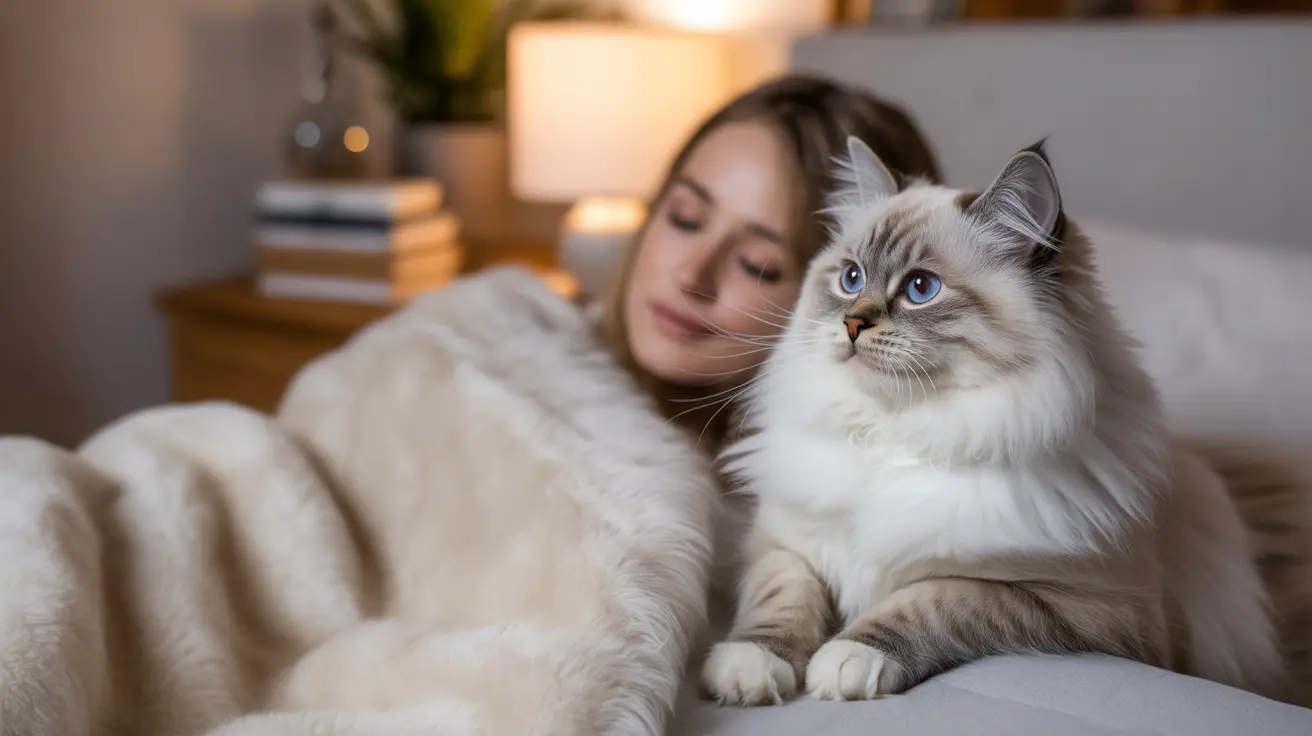Have you ever noticed your cat behaving differently when you're under the weather? Many cat owners report their feline friends showing unusual attention or changed behavior when they're sick. This fascinating phenomenon has both scientific and anecdotal support, suggesting that cats may indeed have the ability to detect illness in their human companions.
From their extraordinary sensory capabilities to their deep emotional bonds with their owners, cats possess several mechanisms that could help them recognize when something isn't quite right with our health. Let's explore the fascinating ways cats might detect illness and how they typically respond to sick owners.
The Science Behind Cats' Illness Detection Abilities
Cats are equipped with remarkable sensory capabilities that make them highly attuned to changes in their environment, including changes in their human companions' health status. Their sense of smell is approximately 14 times stronger than humans', enabling them to detect subtle chemical changes in the body that often accompany illness.
These keen olfactory abilities allow cats to pick up on hormonal changes, variations in body chemistry, and even specific compounds released during certain medical conditions. For instance, some cats have been observed responding to the sweet smell associated with diabetic episodes in their owners.
Physical Changes Cats Can Detect
Beyond scent detection, cats are incredibly observant of physical changes in their environment and their owners' behaviors. They can notice:
- Changes in body temperature
- Alterations in breathing patterns
- Differences in movement or gait
- Variations in voice tone or frequency
- Shifts in daily routines or activity levels
How Cats Respond to Sick Owners
When cats detect illness in their owners, their responses can vary significantly based on their personality and relationship with their human companion. Common behavioral changes include:
Increased Attention and Affection
- More frequent visits to check on their owner
- Extended periods of laying next to or on their owner
- Increased purring, which may have therapeutic benefits
- Extra grooming or gentle pawing at their owner
Protective Behaviors
Some cats display protective instincts when their owners are unwell, such as:
- Refusing to leave their owner's side
- Showing aggressive behavior toward other animals or people who approach
- Becoming more vocal or alert
- Maintaining a "guard" position near their sick owner
The Role of the Human-Cat Bond
The strength of the emotional connection between cats and their owners plays a crucial role in illness detection. Cats who have formed secure attachments with their owners are more likely to notice and respond to changes in their human's health status.
This bond enables cats to develop a detailed understanding of their owner's normal behavior patterns, making it easier for them to detect when something is amiss. The closer the relationship, the more likely a cat is to show concern when their owner is unwell.
Frequently Asked Questions
How do cats use their sense of smell to detect when their owner is sick?
Cats use their powerful sense of smell to detect chemical changes in the body associated with illness, including hormonal fluctuations and changes in body chemistry. Their sensitive noses can pick up subtle alterations in body odor that humans can't detect.
What behaviors do cats show when they sense illness or pain in their human companions?
Cats typically show increased attention, become more affectionate, spend more time near their owner, and may increase their purring. Some cats might also display protective behaviors or become more vigilant.
Can cats recognize changes in their owner's routine or emotions that signal sickness?
Yes, cats are extremely observant of their owners' daily routines and emotional states. They can notice when someone deviates from their normal patterns, such as staying in bed longer or showing signs of distress.
Are there specific illnesses cats are known to detect, such as diabetes or seizures?
While not scientifically proven, there are numerous accounts of cats detecting conditions like diabetes, seizures, and even certain types of cancer. These detections are often attributed to their ability to smell chemical changes in the body.
How can I tell if my cat is acting differently because I am unwell or stressed?
Look for changes in your cat's normal behavior patterns, such as increased clinginess, unusual vigilance, or changes in their typical interaction style with you. Compare their current behavior to their usual demeanor to identify significant changes.
The Value of Feline Intuition
While cats may not be able to diagnose specific medical conditions, their intuitive abilities and keen senses make them excellent observers of human health changes. Their reactions to illness in their owners can serve as additional indicators that something might be wrong, though they should never replace proper medical attention.
Understanding and appreciating these capabilities can help strengthen the bond between cats and their owners while potentially providing early warning signs of health issues. Remember to pay attention to significant changes in your cat's behavior – they might be trying to tell you something important about your health.






